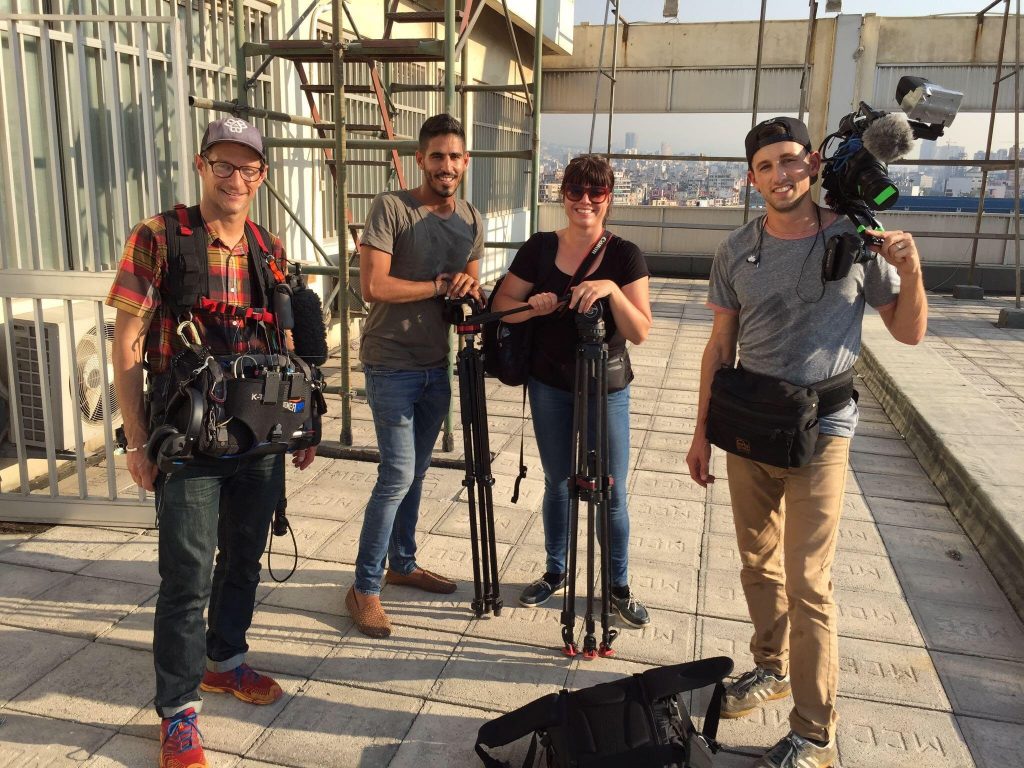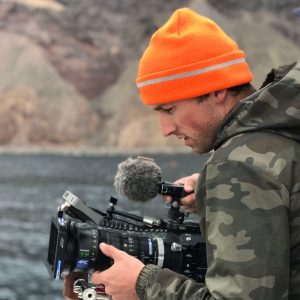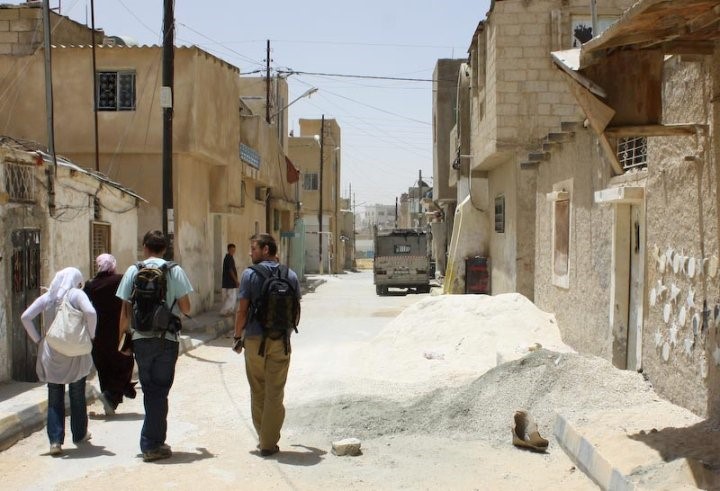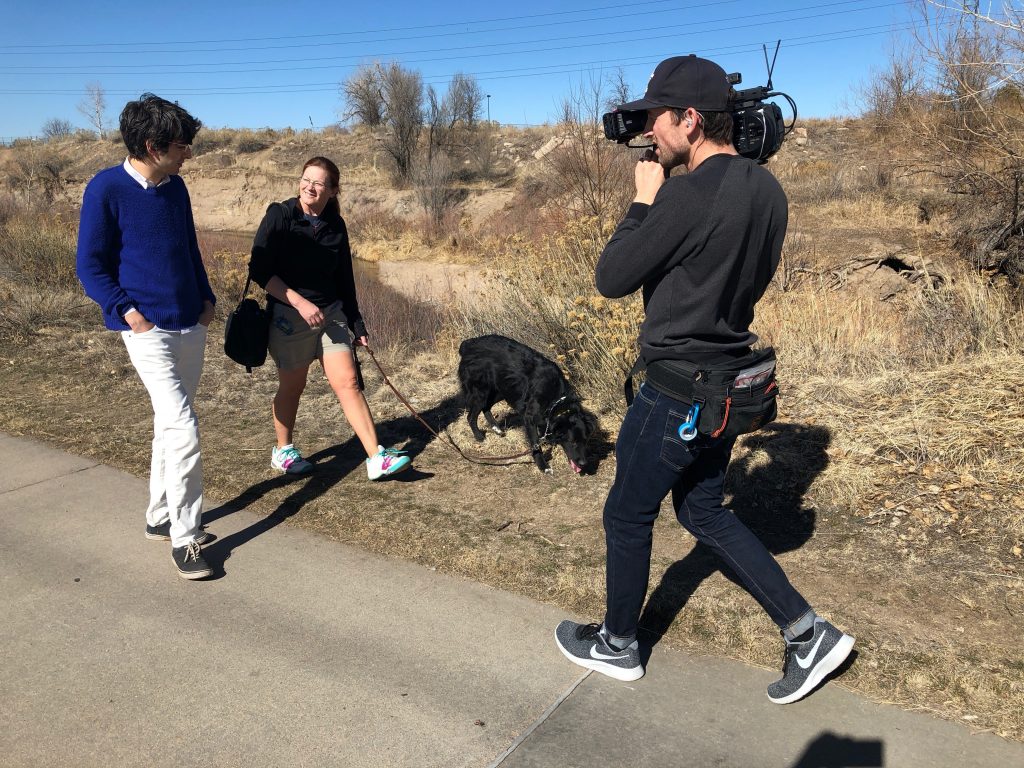How the liberal arts can take you around the world
Filmmaker Andrew Cagle '10 has worked for VICE on HBO, been on the front lines of major world events, and traveled around the world. He shares how a Liberal Arts degree helped him do so.
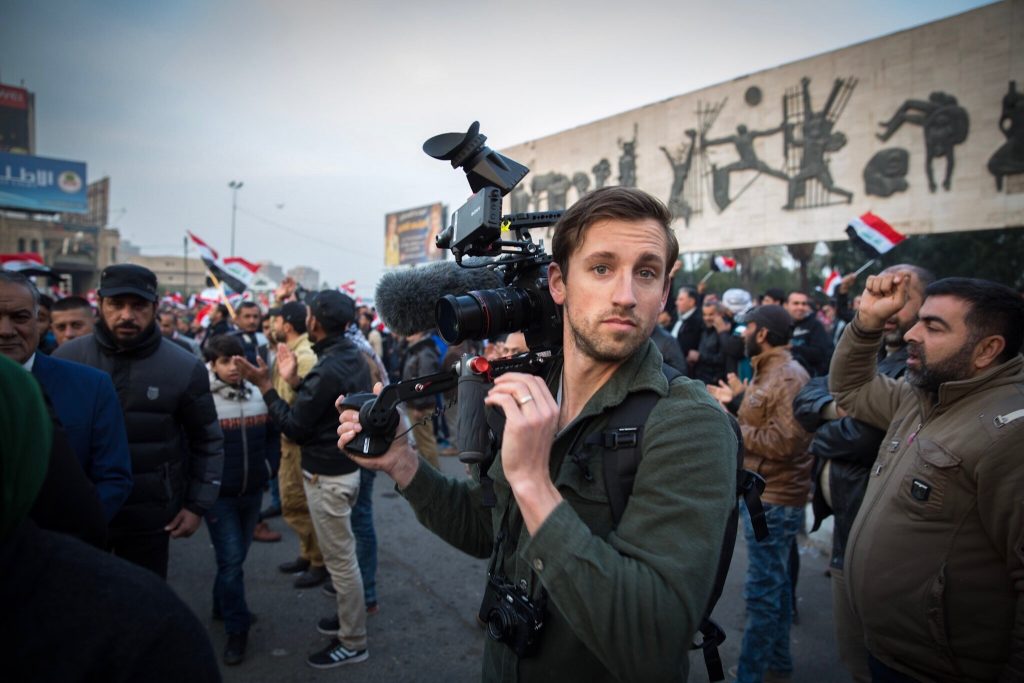
By Alix P ’18
Meeting with the president of Rwanda, working for VICE on HBO on the frontline between ISIS and the Syrian Arab Army, filming a story on the political crisis in Lebanon — what does a Liberal Arts degree have to do with this?
For Andrew Cagle, filmmaker and class of 2010 College of Liberal Arts former student, it has everything to do with it.
“In my job, I am living out everything that you study in the liberal arts,” Cagle said. “How to think, how to process things with a non-reactionary response, how to look at what’s happening in the world and patiently sort out what it means.”
Cagle is a cinematographer based in Brooklyn, New York, but his beginnings at Texas A&M University had quite a different direction. Starting in the Corps of Cadets, Cagle came to Texas A&M with plans to join the military after college. His interest in other cultures and the military led him to major in International Studies, focusing on the Arabic language and culture.
Cagle went through a period of time similar to what many students in college have to face: learning how to define personal values and beliefs, and how they will shape your life. He came to understand his own Christian faith as incompatible with military service, and left the ROTC program his junior year. He found his new passion by watching documentaries, so he bought a cheap camera and played around with it. The spark of interest grew, and eventually he was digging deeper and learning more.
“I sort of fell into it,” Cagle says about filmmaking. “It was a natural process where I enjoyed what I was doing and continued to learn more. Storytelling became my calling and was only made possible by choosing a different path than what I was on.”
Even though his future direction had changed, Cagle’s time in the Corps and learning about world cultures proved invaluable. During that time, he had the opportunity to study abroad twice, first in Morocco and then in Jordan — experiences he considers pivotal in both his education and his career.
“It’s one thing to study books, but you can’t grasp the complexity on the ground unless you go there. I learned a lot firsthand,” Cagle said. “It illuminated everything I was learning in my major, corrected misconceptions, and tested things I thought I knew.”
Cagle’s study abroad experiences furthered not only his language skills, but his cross-cultural understanding and mediation abilities as well. Being immersed in another country’s language and culture provided a first-hand understanding of locals’ identity. Equipped with the capability to critically think about the world from his experience in the College of Liberal Arts, Cagle entered into the trade of filmmaking with a unique edge after college.
“My education gave me a lot of added value in the trade, well beyond the minimum,” Cagle said. “Liberal Arts provides you with the base level: how to think. The key is to apply it — to translate it to skill and work. And it’s most important to do this while you’re still at Texas A&M.”
Cagle’s career led him to living in South Sudan and Lebanon, as well as travelling to work in Iraq, Syria, Egypt, Tunisia, and more. The combination of skills provided by his education and dedicated labor unlocked exceptional opportunities for Cagle’s work.
He worked with VICE on HBO for four years, following some of the world’s largest current events with access from VICE that most media outlets don’t have. One of his favorite projects was with VICE in Beirut, Lebanon, where he lived and worked as a local doing a story in his own backyard. The undercover project aimed to expose the sex trafficking system in the country. Because of it, their efforts illuminated injustices that we can’t let hide in the dark.
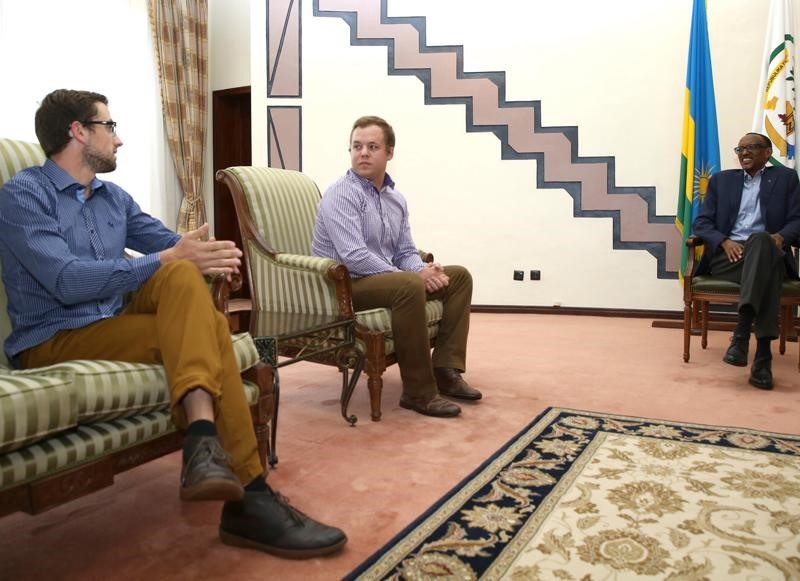
Cagle (left) meeting with President Paul Kagame of Rwanda after setting up a meeting on Twitter. Photo: provided.
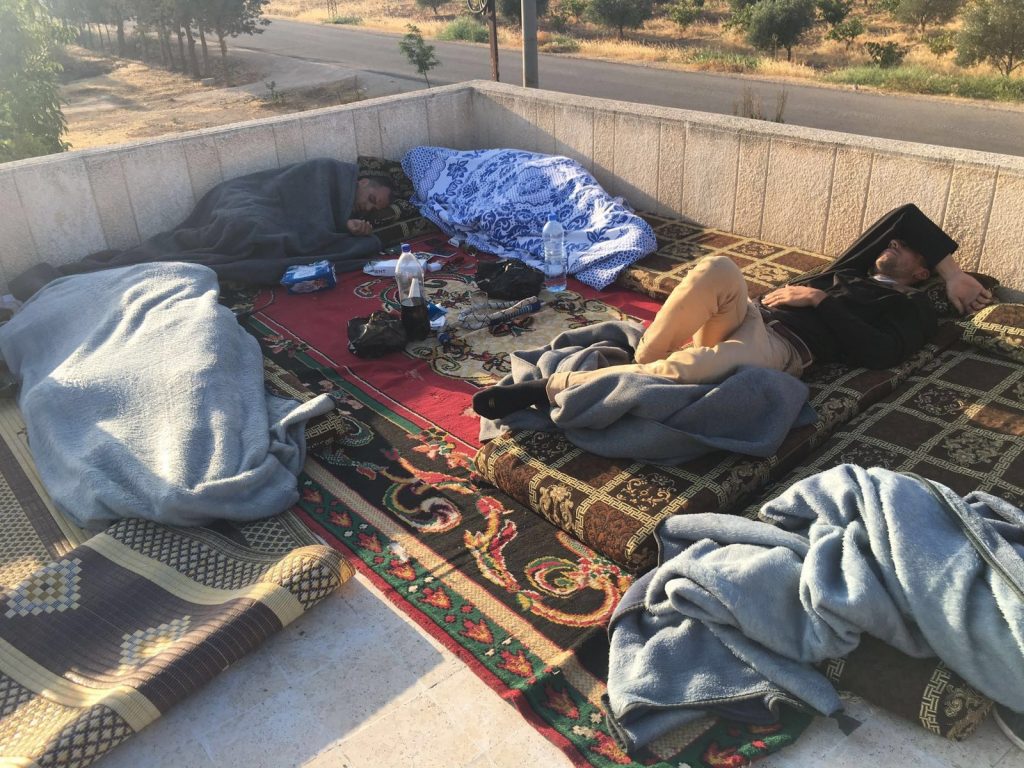
Waking up on a roof on the front line between ISIS and Syrian Arab Army while filming for VICE in rural Homs, Syria. Photo: provided.
The films and documentaries created by Cagle have extraordinary impact on the world, simply through building relationships and telling stories. He describes how the greatest potential for significance lies in the relational aspect of filmmaking.
“I’ve found that the desire to be ‘influential’ really hinders your work,” Cagle said. “It doesn’t matter if my work makes an impact in itself. I’m doing something wrong if that question causes me to overlook the ordinary. The greatest impact is in the process — it’s the relational, the ordinary. I have had many redemptive and healing conversations with people through my work as a filmmaker.”
Cagle’s roundabout college experience led him to find work that combined his interests and his skills. Because of it, he can infuse passion in the projects he gets to work on, the stories he gets to tell, the people he gets to meet.
“A liberal arts degree is all about how you apply it — no one is telling you what to do with it,” Cagle said. “Utilize that freedom, get some practical experience, and figure out what it looks like for you.”
Learn more about Andrew Cagle’s work here.

